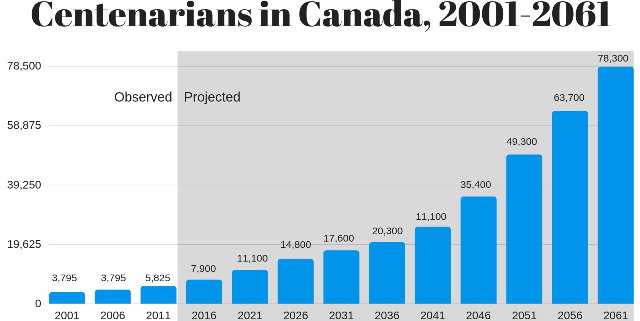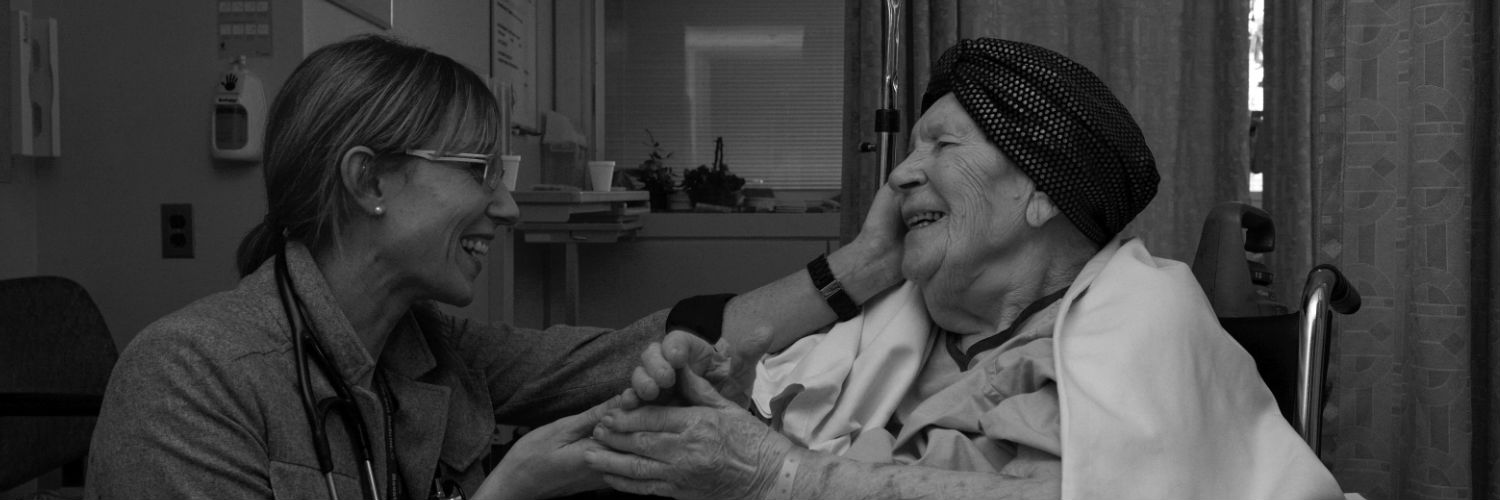Today is National Seniors Day and there has never been a better time to be an older Canadian. Today, older Canadians are living happier, healthier, and longer lives than their counterparts in previous decades.
It’s well-known that our population is ageing. In fact, our population is ageing so rapidly that the fastest-growing age group is now those over the age of 100! Our longevity revolution in the 21st century is the triumph of one of the greatest public health achievements of the 20th century. In the past few decades, Canadians have paid greater attention to behaviours that can promote healthy ageing, such as exercise, and have reduced participation in unhealthy behaviours, such as smoking, which has contributed to the extended golden years that many older Canadians now enjoy. The lesser known benefit of our efforts in supporting wellness and prevention to improve our overall vascular health have not only meant that fewer people are dying of heart attacks and strokes in our later ages but far fewer Canadians are also living with dementia as well. Indeed there is much to celebrate and encourage us to look forward to our golden years.

Source: Statistics Canada
Since the 1960s, life expectancy for both men and women has increased by 10 years. While in 1961, a Canadian woman could expect to live 74 years, today they can expect to live to 83, and many are living much longer than that. If the increase in life expectancy continues, most Canadians born after 2000 will live to celebrate their 100th birthdays. For now, this longevity revolution has transformed the structure of our population, with more Canadians now over the age of 65 than under the age of 15. In the coming decades, Canada will increasingly be an older society.
Canadians are not just living longer, they are healthier too. It’s true that the rapid increase in life expectancy has not been matched by an increase in healthy years, meaning some Canadians spend many of their later years relying on support from unpaid caregivers or residing in long-term care homes. However, it’s undeniable that older Canadians today are far healthier than older Canadians were in the 1960s and 1970s. Since 1970, the number of new dementia cases diagnosed each year has dropped by 40% and the total number of dementia cases has dropped by 20%. Over a similar period, the number of Canadians who experience hip fractures has declined, as has the prevalence of disability among older adults. Older adults today are simply better off than their counterparts were only a few decades ago.
While they certainly face more health challenges than their younger counterparts, older Canadians are also more satisfied with life as a whole than others. Statistics Canada has found that Canadians aged 70 and over and Canadians aged 15 to 19 are most satisfied with life overall (and, unfortunately, that satisfaction quickly disappears when teenagers enter their 20s). Older Canadians who are more well-connected, or who are not separated from their partners, are more likely to be the most satisfied overall in later life. This important fact helps us appreciate why combatting social isolation is an important endeavor as we age.
In addition to being happier and healthier than their counterparts 40 years ago, older adults today are also wealthier. From 1976 to 2014, the median after-tax income of families whose major income earner is an older adult rose 66% to $54,500. The income of unattached older adults comparably rose during the same period, nearly doubling to $26,900.
All of this good news is coupled by the fact that there are still many challenges older Canadians face. Among those challenges are barriers to fully participating in communities, such as social isolation, financially secure retirement, and access to transportation. For example, about 20% of older adults are believed to be socially isolated. A further 606,000 older Canadians are living just above the poverty line, and less than 10% of older Canadians use public transit which can put them at increased risk of social isolation when many retire from driving. At the same time, the prominence of chronic conditions and living with multiple chronic conditions has increased, which is shaping up to be the defining health care challenge of the 21st century especially when many such as heart disease and dementia become more commonly developed conditions as we age.
There is clearly much more work to be done to ensure every older Canadians can achieve healthy ageing. However, we should be proud that our current generation of older Canadians is far closer to achieving that goal than any that has come before it.
Date modified: 2018-09-28

